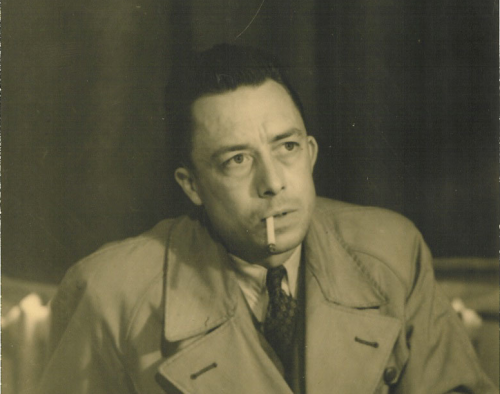Posthumous Controversies
by Horacio Castellanos Moya and translated by Sam Cogdell / February 28, 2013 / No comments
Even in death, some writers can’t avoid trouble.
Controversy hounds some writers for many years, sometimes even after their death. If they were involved in bitter political conflicts while alive, then death brings them no peace. And if they happened to join ranks and fight with those on the losing side, they will not only pay the price for it as long as they live, they’ll keep paying it even after they’re dead.

- Corkscrew is focused on Latin American issues. Literature, journalism and politics are the main concerns of this column. A corkscrew is useful only if it opens a bottle, hopefully full of something that would enlighten our spirits, but we could also set loose a cruel Genie or a rotten wine. The author will follow this principle: look for topics that open debates, new perspectives, and controversy. Cheers!

- Horacio Castellanos Moya is a writer and a journalist from El Salvador. For two decades he worked as a journalist in Mexico, Guatemala, and his own country. He has published ten novels, five short story collections and two books of essays. He was granted residencies in a program supported by the Frankfurt International Book Fair (2004-2006) and at City of Asylum/Pittsburgh (2006-2008). In 2009, he was a guest researcher at the University of Tokyo. Currently he teaches at the University of Iowa.
The most recent example of this phenomenon is presented in the case of French Nobel Prize winner Albert Camus (1913-1960). The celebration of the centennial of his birth, planned for 2013, has been marred, if not completely shut down, by the revival of the debate over his position during the Algerian war. The child of French colonists, born and raised in Algeria, Camus managed to set himself at odds with the parties on both sides of the conflict: His independent judgment and sharply-honed critical sense refused to fit into the Manichaeism of the time.
While alive, Camus was controversial not only in France, but also in the international arena. This was especially so at the height of the Cold War when the intellectual contingent headed by Sartre aligned themselves with the Soviets, while Camus harshly criticized the Russian invasion of Hungary in 1956. More than fifty years later, the controversy continues. On August 1, 2011 the Italian newspaper Corriere della Sera reported that the auto accident in which Camus lost his life in 1960 may have been set up by agents of the KGB, and that the orders may have come from the Soviet Foreign Minister himself, Dmitri Shepilov, in retaliation for Camus’s journalistic campaign against the invasion of Hungary.
But let us return to France, where in 2010, to commemorate the 50th anniversary of the writer’s death, then-French president Nicolas Sarkozy announced his intention to have Camus’s remains transferred to the Panthéon, where the country’s national heroes are interred. The reaction against the president’s proposal was immediate. But on that occasion, it was not veterans of the Algerian War, but Camus’s own son, Jean, who opposed the move and accused Sarkozy of trying to appropriate the legacy of an independent writer long considered a hero of the Left.
The controversy between Sarkozy and Camus’s family reminds me of a similar situation that arose in El Salvador that same year. It marked the 75th anniversary of the birth of revolutionary poet Roque Dalton, who was assassinated by his own guerrilla comrades acting on false accusations that he had been an agent of the CIA. The government of Salvadoran president Mauricio Funes proposed a plan to commemorate the poet, but Dalton’s children demanded that a former guerrilla leader who had participated in Dalton’s murder be removed from his government post before they would allow official use of their father’s likeness. Funes refused to dismiss the official and the poet’s children refused to permit official use of their father’s name. There was, consequently, no official celebration. The significant thing about the Dalton case is that the first leftist government in the history of El Salvador was the one that decided to protect those responsible for the poet’s death, instead of seeking justice for his case. Though we can’t truthfully say that controversy has pursued Dalton “to the grave,” since he has no tomb–his assassins still refuse to identify the place his remains were buried.





